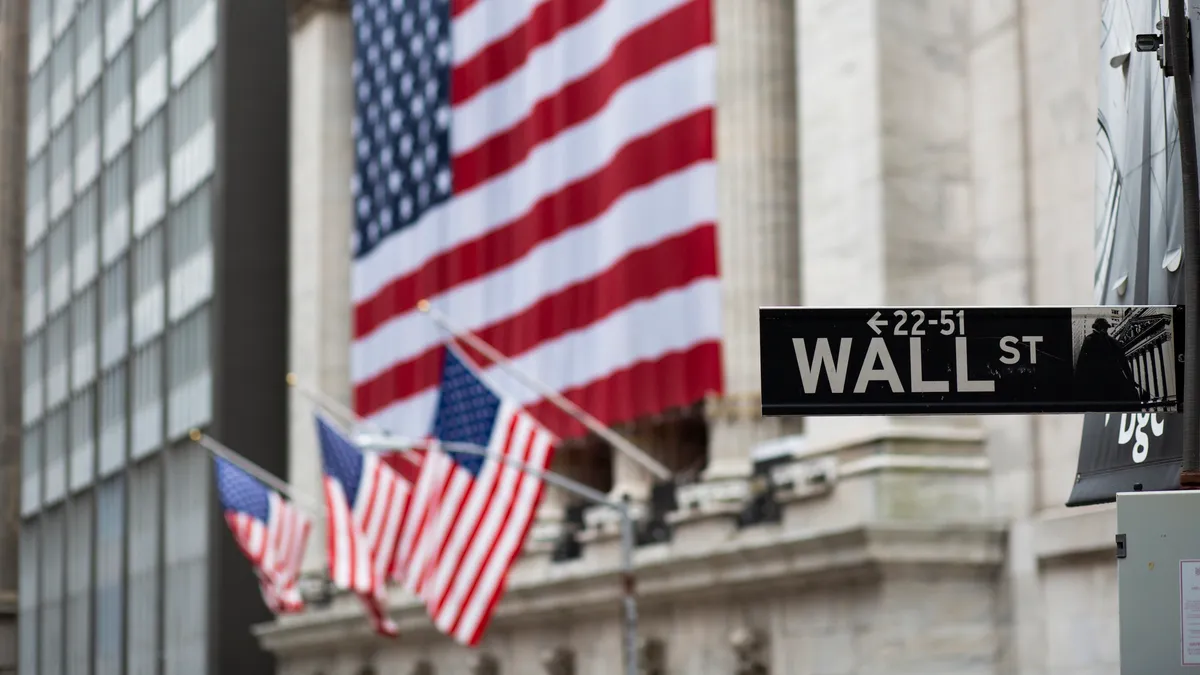Dive Brief:
- Initial public offerings (IPOs) in the Americas plummeted 72% during the first quarter compared with the same period last year, with total proceeds imploding 95% to just $2.4 billion, EY said.
- “This year continues to test the resiliency and agility of companies looking to go public,” EY Americas IPO Leader Rachel Gerring said, citing market volatility, “geopolitical crises” and rising inflation, including surging oil prices.
- The number of IPOs worldwide shrunk 37% and proceeds slumped 51% during the first three months of 2022 compared with the same period last year, even after generating the highest proceeds during any January in 21 years, EY said. Companies raised $5.4 billion in 321 deals.
Dive Insight:
Many CFOs have shelved plans to take companies public in the face of several risks, including stock market volatility and concerns about COVID-19, according to EY Global IPO Leader Paul Go. In addition, restrictions on Russia’s trade and finance announced after its invasion of Ukraine have stoked inflation in the U.S., Europe and several developing economies.
In the U.S., inflation running at a four decade high prompted the Federal Reserve last month to raise the benchmark interest rate a quarter point in its first policy tightening since 2018.
“Getting inflation down is our most important task,” Fed Governor Lael Brainard said in a speech Tuesday, affirming that policy makers at coming meetings plan additional increases in the federal funds rate and reductions in the central bank’s $9 trillion asset portfolio. “Inflation is much too high and subject to upside risks.”
The Fed provided record stimulus in early 2020 to support financial markets and revive the economy from a pandemic-induced downturn. Stock markets this year have seesawed — and discouraged IPOs — partly in reaction to the withdrawal of Fed accommodation.
“As many uncertainties remain, the market will remain volatile with a backlog of IPO candidates and pipelines will continue to build up,” Go said. “There is a risk that IPO activity will continue to slow further.”
The array of risks has also jolted deal-making. The total value of worldwide mergers and acquisitions slumped 23% to $1 trillion during the first quarter compared with the same period last year, according to Refinitiv.
Biotech startups in particular have felt the chill in the IPO market after going public at a record pace last year.
Even Scribe Therapeutics has stayed on the sidelines despite its credentials. The company was co-founded by Jennifer Doudna, a professor at the University of California, Berkeley, who shared the 2020 Nobel Prize in Chemistry for pioneering work on CRISPR-Cas9, a method to edit DNA.
David Parrot, a former Barclays executive, joined Scribe as CFO in December with a mandate to launch an IPO. He has held back amid a slump in bio-tech firms that went public during the past year.
“I was definitely brought on to take us public at some point in time but the market right now is not conducive to that,” Parrot said in an interview.
Despite setbacks for biotech companies, the broad technology sector led IPO tables during the first quarter, raising $9.9 billion in total, EY said.














